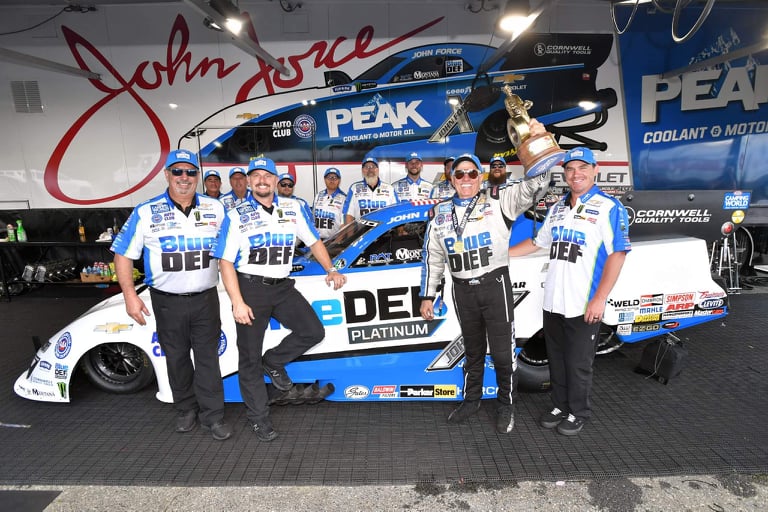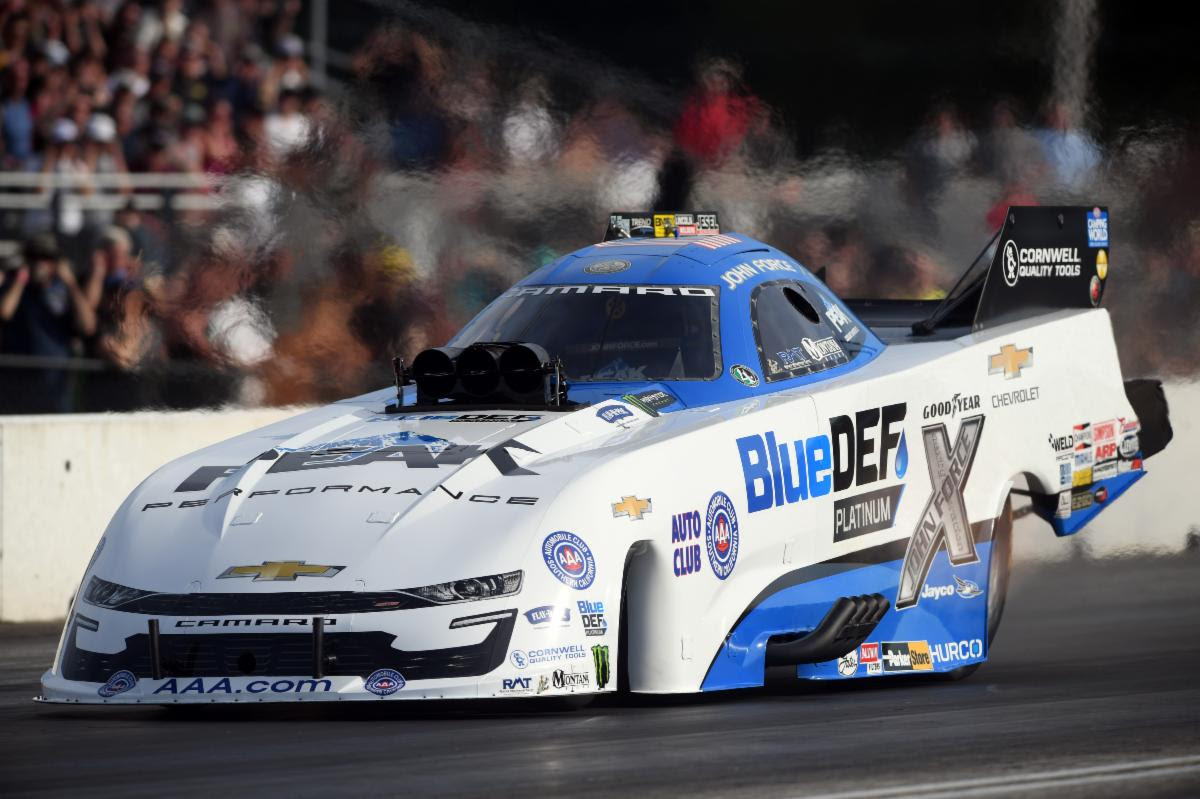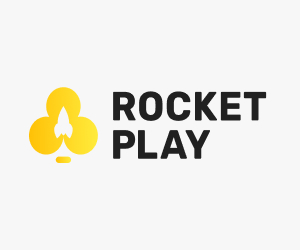In this week’s interview, Speedway Media catches up with two-time Funny Car champion and current NHRA on FOX commentator, Tony Pedregon.
We picked up with Pedregon as he discussed his years with John Force Racing, close finishes, racing with Force, making a name for himself and numerous other topics regarding his 1997 to 2002 years in NHRA Drag Racing.
SM: In our last interview we talked about your 1996 season when you were hired by John Force to drive for his Funny Car team and how you got your first win that year at the Southern Nationals in Atlanta, out-racing Force in the final round. You recalled telling him after the win that he had “created another winner,” but also said that it created some awkwardness. When the 1997 season rolled around, had the awkwardness worn off enough that the two of you were comfortable having conversations about anything or was your relationship strictly racing related?
TP: “No, I think after I won that first race (Atlanta, 1996), it (me winning) was a little bit of a shock (to John Force),” Pedregon said. “I don’t know if anyone would have anticipated the feeling when I won. The feeling for me was great. That was the opportunity of a lifetime for me. For John (Force, Pedregon’s former Team Owner), it was a matter of him just having a better understanding of what he was building, adding another driver, etc. The idea was to build an R&D program to help him win and be more successful.”
“I don’t know if he (Force) understood all the things that came with it. After the ego fell off, he was able to leverage that. He was able to go back and say ‘Look, I built another program, this is a winner.” I was younger, somewhat marketable. I just wish he would have known that at dinner that night.”
SM: Did you think it was hard for Force to realize that he had something with you that he could build on?
TP: “Yeah, I don’t think it had set in,” he added. “It was not the most pleasant dinner, to be honest with you. (The) dinner was in Atlanta and there used to be this steakhouse called BT Bones. There were so many of us and I kept looking over, his close friend he grew up with, I was sitting next to him and he said ‘Boy, he’s not happy.’ I was young and I was thinking at least I won the race. Those are the things you go through. It was the start of something good, kind of broke the ice.”
SM: Entering the 1997 season, I recall us talking about you finishing second in points in 1996. As you entered the ’97 season, were there any discussions with your team about how to finish one spot better? I assume that a championship was the goal for you in ’97.
TP: “Not really,” Pedregon said. “It (winning the championship) took a few years. I think I understood my role with John. To be honest with you, John had the stronger car. We grew into a team that could win two to three races. John’s car was just more consistent. When we would race, they would set John’s car up to win under any circumstance.”
“I remember in those early years, that was the kind of position I accepted when I worked for him. I think I was a good teammate, good player. I understood my role, but what happens over time is that changes. Just like anything else, people change. John would tell me if you guys get out there, I’m going to let you go. Whether he really meant it or was telling me to keep me mentally in the game, I think it was a little bit of both.”
SM: Do you think him saying that was an intimidation factor?
TP: “No, I don’t think so,” he said. “John always wanted to get to know people and one of the ways he would do that is going to bars. When we would race, we would always stay at a motel with a bar where we raced. I was a little frustrated with John, because if he hired someone to work on the car, he wanted to get to know him and hang out with him.”
“It was frustrating for him because I wouldn’t drink. He asked ‘Can I at least get you some milk?’ I said ‘John, what you see is what you get. I’m quiet and put the work in, I’m here and committed. I don’t think he ever thought it was that simple.”
SM: You opened that season up hot racing to a final round at the Winternationals against Force. Unfortunately, you came up a bit short after smoking the tires and moving toward the guardrail. When you look back on that, how tough was it losing in the Winternationals? Was it more disappointing to lose to Force than another competitor or did you look at it as a great finish for the team?
TP: “I used to play it off, like at least I lost to John,” Pedregon said. “To be honest, the feeling of (losing to John) wasn’t any different. It (losing to him) was a bummer. I almost never looked forward to racing John, because we were teammates. I thought if there is a built-in advantage, then he has it (the advantage).”
“I intentionally didn’t really ask questions. I’m just going to get in the car and do what I can. I would always do things I wouldn’t typically do. I thought well, if they’re going to make my car lose traction. We tried that a couple of times, but it didn’t happen. That was always the funny part, if we tried to pull something like that.”
SM: The Slick 50 Nationals was the site of your first win that season and under special circumstances. You defeated your brother Cruz in what was the first ever round between brothers in NHRA history. What were the days like leading up to that event and what transpired afterward? You almost got the win yourself as you got close to the wall.
TP: “I’ll never forget that race,” he said. “I’ll always remember we had a good car. I remember in the semi-finals and watching Cruz (Pedregon’s brother) win and thought that it would be cool if we could race each other in the final and I’ll never forget the feeling.”
“When the race was over, for me, it felt like a mission accomplished. Whatever happened after that was icing on the cake. Cruz and I come from humble beginnings, we were at the right place and right time. I didn’t really feel a lot of pressure racing in the finals. Whatever I do is going to be fine, whether I win or lose.”
“I remember at half track, the car started to drift toward the right. I had the steering wheel cranked to the left. Just before I got to the finish line, I thought if I don’t get off the throttle, I’m going to hit the wall. I was looking over to see if Cruz would blow by me and he never did, so that was a pleasant surprise.”
“It was emotional to me, not necessarily after getting out of the car but Rick Stewart (former NHRA starter) walked to me and he had raced with my dad (Frank Pedregon Sr.) in the 60s and told me when you guys were backing up, he looked up, and that was emotional to me.”
SM: 1997 was definitely a stepping stone for you as you earned two victories. Were you by that point more comfortable with the car and horsepower of the Funny Car and not on a learning curve anymore?
TP: “Not as much,” Pedregon said about the learning curve. “I remember after the first win, John was in the parking lot and he pulled up and I saw him. He was on the phone with someone, and said, you’ll be happy to hear, I got a full-year (1997) for you. I thought wow, that’s pretty good. That took a lot of questions out of it.”
SM: In 1998, you and Force ran similar cars. Force ran the famous Castrol GTX while you drove the Castrol Syntec machine. Talk about how the sponsorship from Castrol came about and were there ever any moments where there was confusion since you both had the same sponsor?
TP: “When the Syntec sponsorship rolled around, it gave me my own identity,” he said. “I was no longer in the shadow of John. Just because the car was black, we had our own identity. As far as the mentality of the driver being able to be successful, from that perspective, it (sponsorship) was a good thing.”
SM: During that year, you met Force in the second round of eliminations for the first time in a match-up between the Castrol cars at the Gatornationals. You had the jump on him but unfortunately you lost traction and Force went by you for the win. How tough was that since it was the first match-up between the Castrol schemes?
TP: “It’s definitely not the preferred match-up,” Pedregon said about the Force-Pedregon race. “It doesn’t make for the most pleasant Saturday afterward. I remember thinking if we were on the ladder in the second round, he’ll (John) get beat. Maybe, I won’t have to race him. At least we lost to him. At times, I had to force myself to stay positive. I had to make an effort to do it because competitively, it wasn’t the best feeling.”
SM: Just a few races later at the Fram Nationals, you were in a first-round match-up with Ron Capps. Your reaction time was .02 but Capps rocked it to the finish line for the round one win. It seemed as though in 1998, you and the team were on fire and gelling really well but losing in close races. Was that starting to get frustrating for you?
TP: “It always was frustrating,” he said about losing close races. “I remember most of those losses because you never get over it. I never kept track of reaction times and how many holeshots I won, lost. I do know anytime I lost in a close race, I told myself ‘don’t forget that.’ If you race long enough, you’re going to get beat. I just always knew that wasn’t going to happen. I thought, ‘I can’t give them that (win) next time.”
SM: Jumping ahead to 1999, you recorded what was at that time, the quickest Funny Car pass in history, with a pass of 4.799 seconds. Can you remember what it was like going that fast? What were your feelings afterward?
TP: “I remember breaking into the 70s mark,” Pedregon said. “I remember getting off the throttle in those quick runs, because the body started to move around. I just remember I would get out of the car, I was glad to stay on the throttle. There again, we continued to get better as a team as the season wore on.”
SM: 1999 seemed to be a breakout year for you. You finished second in the standings once again. In addition, you earned three wins with seven final-round appearances, qualified for all the races and had four No. 1 qualifiers. What made 1999 so special for you and the team?
TP: “Just chemistry,” he said. “I got better as a driver and more consistent. I think John Medlen (Pedregon’s former Crew Chief) would always tell me the most important part of the car is the fuel pump and the other was a supercharger. If we had a good one or two (supercharger), John’s team would take it. There again, we were the R&D car.”
“After a while, I could see things change. We became more competitive. He would have to pick and choose which supercharger to put on because we had the best. Out of those superchargers, John (Force) would pick the best and we would get leftovers, but we would make it work.”
SM: In 2000, you won your first ever career race at Topeka defeating none other than John Force. In the post-race interview, you said “If you have to beat John to make a living, you’re not going to do very well.” How special was that first win at Topeka? Was it a bucket list item?
TP: “Topeka, if the conditions were right, the track would be known for quick and fast,” Pedregon said. “I remember some of the post-race interviews, especially if John was in the final and thought ‘oh. They want both of us, it’s not just me having the freedom to say what I want.’ However, I had that respect for John.”
“John and I’s relationship was good. Things could get a little tough, I think we were always really solid as far as our relationship goes.”
SM: After the runner-up finish at the Winternationals, you were victorious at the Englishtown Nationals when you were the No. 1 qualifier for the first time in your career and you won against Force. What do you remember about that win and the event? I’m sure Englishtown remains very special in your career.
TP: “Englishtown always was (for me),” he said. “In ‘01, things started to change. The competition was really good. It was just Englishtown. The good races were Gatornationals, Winternationals, and Englishtown. Englishtown is one of those (tracks) that has so much history. I go ‘Wow, we won Englishtown.’ If you could win those A races, those are the best ones.”
SM: 2002 was another breakout year for you. You won six races out of eight final rounds and once again finished second in the standings in two consecutive years to Force and for the fourth time in your career. Was not winning a championship started to get frustrating for you?
TP: “I wouldn’t say frustrating,” Pedregon said. “In 2002, that’s when the game changed for me, because I don’t remember specifically what races we won but I do remember we won two in a row, they were past the halfway point in the season. When we won two in a row, he (Force) missed a couple of beats and we got close to him in the points.”
“When we got close to him in the points, that’s where it really came for me. I think we got close to 11 points. And when I got close, they (Force’s team) would call me back into the shop and it was Force, Austin (Coil, Force’s former crew chief) and Medlen and Bernie. They sat me down in Bernie’s office before California. It was Bernie who was always talking.”
“I’ll give you the short version. I know John told you, you had the chance, but you don’t have a chance (of winning the championship).” That to me was when it all changed for me. I didn’t say anything in the meeting, because I just listened to everything they said and I thought we were done in those meetings and John asked if I had anything to say and I said ‘anything I say will not change the outcome.’ If you’re asking me if I like it, I said ‘no.’
“I said ‘John you gotta understand. When I wake up in the morning, what drives me to be good is if you think you had a chance.’ I would have been better off if you guys didn’t tell me. I walked out of that meeting and thought there’s nothing more I could do. We raced in the finals at Pomona and he beat me on a holeshot. I remember thinking if I beat him, they’re going to make my car smoke the tires, because the caveat for John that year was (winning) 10 championships in a row. Everyone was prepared for that, so therefore, I was never going to win if I made it to the final. I remember leaving the track that day, I just have to deal with it.”
SM: Obviously, winning the Gatornationals was special for you. A few days earlier, your grandma had died and you mentioned her in victory lane. I’m sure Gatornationals 2002 was a very emotional day for you.
TP: “Yeah, yeah,” Pedregon said about the emotional win. “We weren’t as close to some of our family members as we would have liked, because we were racing. We spend so much time on the road. I think back on it and say ‘Why couldn’t we have carved out a little more time?’ I think they knew this is the path we chose.”
SM: Wrapping part two up, what would you say are your favorite memories from 1997 to 2002 as you began to come into your own?
TP: “We had some good times,” the two-time Funny Car champion said. “We had some not-so-good times that we haven’t talked about yet. It wasn’t anything out of the ordinary. I think there are periods of time where guys that drive race cars live like rockstars. Not particularly at that level, but for us it was. You know, the circus comes to town, you roll in with these big trailers with names on them, suit up and put a helmet on, it’s almost like you’re different. I really enjoyed being around John (Force). The challenging times are far overshadowed from the good times he and I had. I could never blame him for wanting the control that he had because the business was his. I always understood that. That part of our relationship was good.”
Special thanks to Tony Pedregon for taking time out of his busy schedule to conduct this interview.
Fans of Tony Pedregon can follow him on Twitter here.









